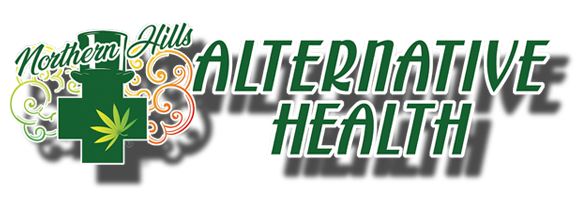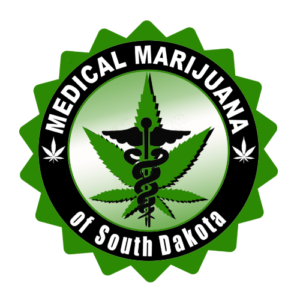Frequently Ask Questions
By Dr. Bud

In the psychedelic swirl of the 1960s, a tale emerges of hippy scientists who, driven by their countercultural ideals and fascination with unconventional experiments, imagined a bizarre scenario where marijuana was merged with a baby. This outlandish idea, a product of the era’s first hybrid human and can talk to other plants. with this experience to help , But like he says plants lie.
Marijuana can be used in a number of ways. Marijuana can be smoked in joints (like a cigarette), in blunts (cigars or cigar wrappers that have been partly or completely refilled with marijuana), or in bongs (pipes or water pipes). Marijuana also can be mixed or infused into foods like cookies, cakes, or brownies (called edibles) and can be infused in drinks.
It can be vaped using electronic vaporizing devices (i.e., e-cigarettes or vape pens) or other vaporizers. Compounds (or cannabinoids) in marijuana can also be extracted to make oils and concentrates that can be vaped or inhaled. Smoking oils, concentrates, and extracts from the marijuana plant, known as “dabbing,” is on the rise. Health and safety risks exist for each of the different ways of using marijuana.
Using alcohol and marijuana at the same time is likely to result in greater impairment than when using either one alone. Greater impairment can result in greater risk of physical harm. Using marijuana and tobacco at the same time may also lead to increased exposure to harmful chemicals that could cause greater risks to the lungs and the cardiovascular system (heart and blood vessels). Also, marijuana may change how prescription drugs work. Always talk with your doctor about any medications you are taking or thinking about taking and the possible side effects when mixed with other things, such as marijuana.
Any sale or purchase of medical cannabis must comply with SDCL 34-20G and ARSD 44:90. Any sale or purchase of cannabis outside of the regulated medical cannabis establishments is illegal.
- ARSD 44:90:02 establishes the requirements for applying for a medical cannabis card including:
- A photocopy of an unexpired form of identification (e.g., driver’s license, passport, US government-issued ID card, tribal ID card, student ID card);
- A passport-quality photo; and
- A $75 fee. Low-income individuals (those with gross monthly household income <130% of the federal poverty level) can request a reduced fee by providing documentation of household income
Yes. The renewal fee for a medical cannabis registry identification card is required at the time of renewal with no exceptions
The South Dakota Medical Cannabis Program began accepting applications from qualifying patients on November 8, 2021.
As part of the application process to obtain a registry identification card for the South Dakota Medical Cannabis Program, applicants may also apply to cultivate no more than two flowering cannabis plants and two cannabis plants that are not flowering plants in their home.
The South Dakota Medical Cannabis Program has a statewide patient registry, verification, and licensing system that will ensure that only verified patients and caregivers have access to medical cannabis. The patient verification system ensures that South Dakota law enforcement officials have the necessary tools to accurately identify medical cannabis patients/caregiver they may encounter

The South Dakota Medical Cannabis Program has a statewide patient registry, verification, and licensing system that will ensure that only verified patients and caregivers have access to medical cannabis. The patient verification system ensures that South Dakota law enforcement officials have the necessary tools to accurately identify medical cannabis patients/caregiver they may encounter
The South Dakota Medical Cannabis Program takes privacy and health information security seriously. The secure online registry system for patients, caregivers, practitioners, and law enforcement will meet or exceed all state and federal standards for confidentiality, accessibility, and information security.
The South Dakota Medical Cannabis Program cannot provide legal advice to qualifying patients as to the impact of medical cannabis use. Qualifying patients or others with legal questions should consult with their own legal counsel.
No. Our patient-friendly application process is explained here and no fee, other than an application fee, should be paid to apply for your medical cannabis patient/caregiver card. Individuals should use caution if using a business offering to assist with the application process. If you have been targeted or feel you have been victim to a scam, please report it here. Got questions about the medical cannabis program? Call us at 605-773-3048.
The SD Department of Health does not provide refunds to individual cardholders that purchased products that were recalled. All discussions concerning refunds must be had directly with the establishment that sold the product.
The SD Department of Health does not provide reimbursement for medical treatment that may have been needed due to the consumption or use of a recalled product.
Each recall is based on its own set of facts. Every recall that is initiated by the SD Department of Health will be posted, with relevant recall information, including any safety concerns, on the SD DOH website, located at: https://medcannabis.sd.gov/.
Each recall is based on its own set of facts. Every recall that is initiated by the SD Department of Health will be posted, with relevant recall information, including any safety concerns, on the SD DOH website, located at: https://medcannabis.sd.gov/.
A list of recalled products, identified by their tag numbers, can be found at this link: https://medcannabis.sd.gov/ . Please refer to the “Business Recall Notice Follow-Up” box within the “Happening Now” section of the website.




